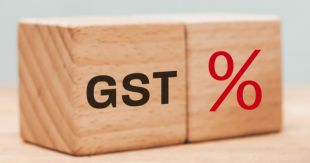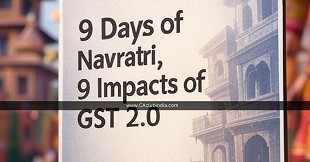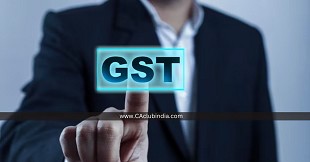GST Articles
GST 2.0: Updated GST Rates (Effective 22 Sept 2025) & What They Mean for Your Business
Pranab BanerjeeIndia has introduced GST 2.0 with simplified slabs - 0%, 5%, 18% and 40% bringing big changes for essentials, consumer goods, durables and luxury items. Learn the key rate revisions, item movements, and what MSMEs must do now to update billing, pricing and compliance smoothly.
9 Days of Navratri, 9 Impacts of GST 2.0
CA Umesh Sharma 23 September 2025 at 08:43The Government of India has notified major GST reforms, effective 22nd September 2025, simplifying the tax structure into three main slabs - 5%, 18% and 40%.
GST Implications on Write-off of Unclaimed Creditors' Balances
Akshay Parakh 23 September 2025 at 08:43The Haryana AAR has ruled that writing off unclaimed creditors' balances does not attract GST, as it is not a "supply" under the CGST Act, 2017. This article explains the implications for Input Tax Credit (ITC), risks of double taxation and key takeaways for businesses managing GST compliance.
Full List of Products with 0% GST from September 22, 2025
gstregistration.co 22 September 2025 at 08:24From September 22, 2025, GST Council’s reform brings 0% GST on food items, stationery, medicines, oxygen and insurance. Check the full Zero GST product list.
GST Notification No. 9/2025: Complete HSN-Wise Rate Schedule Effective from September 22, 2025
CA Varun GuptaGST Notification No. 9/2025-CT(Rate) consolidates all HSN-wise GST rates into one framework, effective September 22, 2025. Check new schedules, slabs and compliance details.
Goods and Services Now Attract Lower Taxes and What Still Don't
Srinidhi S 18 September 2025 at 12:33India's GST undergoes major rationalisation from September 22, 2025, with 12% & 28% slabs removed and a new 40% rate for luxury goods. Key exemptions, thresholds, and rates on essentials, apparel, footwear, services, exports and precious metals remain unchanged.
New GST on Sporting Event: Exemption for Low-Priced Tickets
Poojitha Raam VinayIn a significant move, the Goods and Services Tax (GST) Council has restructured tax rates for sporting events in India, introducing a 40% GST slab for high-pro..
FAQ on GST Rate Rationalization Based on Recommendations in its 56th Council Meeting
Mitali 16 September 2025 at 13:59Get clarity on GST and pricing rules from NPPA and the 56th GST Council decisions covering MRP re-labelling of medicines, uniform 5% GST on drones, GST on bricks, exemptions on insurance, hotel accommodation rates, beauty services, job work, multimodal transport, ECO liability on local delivery, and leasing/renting services.
GST 2.0 Arrives: Threshold for GST Registration Still on 1.0
Chaitra Seetharam 15 September 2025 at 12:04GST 2.0, launched on September 22, 2025, streamlines India’s indirect tax system with simplified slabs (5%, 18%, 40%), faster refunds, and easier compliance. However, GST registration thresholds remain unchanged at Rs 40 lakh for goods and ₹20 lakh for services in regular states.
56th GST Council Meeting: Key Recommendations and Implications
CA.Sangam Aggarwal 15 September 2025 at 08:23The 56th GST Council meeting on 3rd Sept 2025 introduced major GST rate cuts, exemptions, ITC changes, GSTAT roll-out, and compliance reforms. Learn key timelines, sectoral impacts, and business implications.
Popular Articles
- TDS Rate Chart For Tax Year 2026-27: With Revised Section Codes in Challans
- Revised Return Due Date Extension
- Tax Deduction Rules for Employee Contributions From April 2026
- Interest Computation Changes under GST (Effective from January 2026)
- TDS and TCS: The New Shields and Arrows of the Taxpayer
- Comprehensive Guide to Statutory, Tax & Regulatory Compliances for Hotels
- Tax Calculation Slabs For FY 2025-26 (AY 26-27)
- Section 144C Time-Limit Finally Clarified: No More Litigation on Draft vs Final Assessment Deadlines
Trending Online Classes
-
DT & Audit (Exam Oriented Fastrack Batch) - For May 26 Exams and onwards Full English
 CA Bhanwar Borana & CA Shubham Keswani
CA Bhanwar Borana & CA Shubham Keswani -
IDT LIVE Exam Oriented Batch | May 2026, Sept 2026 & Jan 2027
 CA Arpita Tulsyan
CA Arpita Tulsyan














 CAclubindia
CAclubindia
